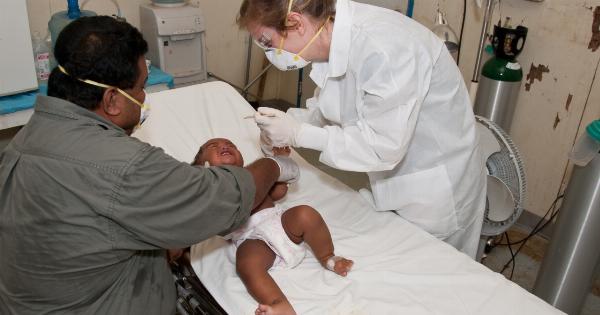When it comes to the health and well-being of our children, parents always prioritize their safety above everything else. This includes being cautious about the medications we give them.
While medications can be essential in treating various illnesses and conditions, it is crucial to use them responsibly and in consultation with a healthcare professional. There are certain medications that children should not take frequently, as they can have adverse effects on their growing bodies. In this article, we will highlight some commonly used medications that should be used sparingly in children.
1. Over-the-counter Pain Relievers
Over-the-counter (OTC) pain relievers, such as ibuprofen and acetaminophen, are widely used to alleviate pain and reduce fever.
While these medications are generally safe, they should not be given to children regularly or for an extended period without consulting a healthcare provider. Frequent use of pain relievers can mask symptoms of underlying health issues and may cause side effects, such as stomach ulcers or liver damage.
2. Cough and Cold Medications
Cough and cold medications are commonly used to relieve symptoms of respiratory infections in children. However, these medications should be used with caution due to potential side effects.
Many of these medications contain multiple active ingredients, and giving them frequently can increase the risk of adverse reactions. Additionally, cough and cold medications are not recommended for children under the age of four, as they have limited effectiveness and may cause more harm than good.
3. Antihistamines
Antihistamines are often used to treat allergy symptoms, such as sneezing, itching, and runny nose.
While they can provide temporary relief, frequent use of antihistamines in children can lead to various side effects, including drowsiness, dry mouth, blurred vision, and constipation. It is important to use antihistamines as directed by a healthcare professional and explore other non-medical interventions, such as avoiding allergens, whenever possible.
4. Antibiotics
Antibiotics are powerful medicines used to treat bacterial infections. However, they are not effective against viral infections, such as the common cold or flu.
Overuse and inappropriate use of antibiotics can lead to antibiotic resistance, making them less effective in fighting bacterial infections in the long run. It is crucial to only use antibiotics when prescribed by a healthcare provider and to complete the full course as directed, even if the child feels better.
5. Sedatives and Sleep Aids
Sedatives and sleep aids are medications used to induce sleep or reduce anxiety. While they can be helpful in certain situations, their regular use in children can lead to dependence and tolerance, making it difficult for them to fall asleep naturally.
It is important to address the underlying causes of sleep issues in children and establish healthy sleep routines rather than relying on sedatives or sleep aids.
6. Antiemetics
Antiemetic medications are used to treat nausea and vomiting. While they can be beneficial for short-term relief, their frequent use can have adverse effects on a child’s gastrointestinal system and overall health.
It is essential to identify and address the underlying causes of nausea and vomiting and explore non-medical interventions, such as dietary modifications or ginger-based remedies, before resorting to antiemetics.
7. Steroids
Steroids, or corticosteroids, are potent anti-inflammatory medications used to manage various conditions, including asthma, allergies, and autoimmune diseases.
While they can be life-saving in certain situations, prolonged or frequent use of steroids can have significant side effects, such as growth suppression, weakened immune system, and bone density loss. Steroids should only be used as prescribed by a healthcare provider and monitored closely.
8. Decongestants
Decongestants are commonly used to relieve nasal congestion due to allergies or the common cold.
However, frequent use of decongestant nasal sprays or oral medications can lead to a condition called rebound congestion, where the nasal passages become more congested when the medication wears off. This creates a cycle of dependency on the decongestant, making it difficult for the child’s nasal passages to self-regulate. Decongestants should only be used for short-term relief and as directed by a healthcare professional.
9. Attention-Deficit Hyperactivity Disorder (ADHD) Medications
Medications used to treat ADHD, such as stimulants or non-stimulant medications, can be effective in managing the symptoms of ADHD in children. However, these medications should only be used under close medical supervision.
Regular monitoring of their effects and side effects is crucial, as each child may respond differently to these medications. It is important to strike a balance between the benefits of ADHD medications and potential side effects on a child’s growth, appetite, and sleep patterns.
10. Anti-inflammatory Medications
Anti-inflammatory medications, like nonsteroidal anti-inflammatory drugs (NSAIDs), are commonly used to reduce inflammation and pain associated with conditions such as arthritis or injuries.
While they can be helpful in managing certain conditions, prolonged or frequent use of NSAIDs can lead to gastrointestinal issues, kidney problems, and increased risk of cardiovascular events. It is important to use these medications cautiously in children and as prescribed by a healthcare provider.
Conclusion
While medications can play a crucial role in managing various health conditions in children, it is essential to use them responsibly and avoid frequent or unnecessary use.
Some medications, such as over-the-counter pain relievers, cough and cold medications, and anti-inflammatory drugs, should be used sparingly in children to minimize potential risks. Always consult with a healthcare professional before giving your child any medication and follow their instructions carefully. Prioritizing the overall health and well-being of your child should always be the primary focus.





























